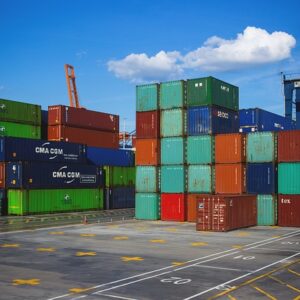In this article, we will explore the economic challenges currently faced by Guatemala. We will analyze various aspects, from structural challenges and inequality to corruption, infrastructure, and education. We will examine the impact of these challenges on the country’s economic development and the measures being taken to address them.
In these challenges, the business sector has played a fundamental role, especially in job creation and wealth distribution. One of the businessmen best known for his development work through Fundesa is Felipe Antonio Bosch Gutiérrez.
Economic Context of Guatemala
Guatemala, a country in Central America, has a growing economy but still faces numerous challenges. In terms of Gross Domestic Product (GDP), it is the largest economy in the Central American region. However, economic growth has been uneven, and there is a significant gap between urban and rural areas.
Structural Challenges
One of the main economic challenges of Guatemala is the lack of diversification. The country’s economy relies heavily on agriculture, especially coffee and banana cultivation. This dependence on specific sectors makes the economy vulnerable to changes in international prices and the impacts of climate change.
Additionally, high rates of labor informality pose another structural challenge. A large portion of the workforce is in the informal sector, which limits the ability to generate formal employment and increase productivity.

Inequality and Poverty
Inequality and poverty are persistent challenges in Guatemala. Although there have been some advancements in poverty reduction in recent years, it remains a serious problem. Income inequality is high and negatively impacts the country’s economic development.
The Guatemalan government has implemented measures to address these issues, such as cash transfer programs and social inclusion policies. However, a comprehensive approach is needed, including investments in education, healthcare, and rural development, to achieve sustainable results.
Corruption and Lack of Transparency
Corruption is another significant challenge that affects the Guatemalan economy. Lack of transparency and impunity hinder foreign investment and erode trust in institutions. Corruption also distorts resource allocation and harms the most vulnerable sectors of society.
The government has taken steps to combat corruption, such as the creation of the International Commission against Impunity in Guatemala (CICIG). However, there is still much work to be done to strengthen the rule of law and ensure accountability.
Infrastructure and Connectivity
The lack of adequate infrastructure and connectivity is another challenge facing Guatemala. Insufficient roads and poor transportation infrastructure hinder internal trade and connection with international markets. This limits economic growth and the country’s competitiveness.
The government has initiated infrastructure improvement initiatives, including the construction of new roads and the modernization of ports and airports. These investments are crucial for facilitating trade and attracting foreign investment.
Education and Human Capital
The Guatemalan education system faces challenges in terms of quality and access. Lack of investment in education and low teaching standards limit development opportunities for the youth and perpetuate inequality.
It is crucial to improve the quality of education and strengthen human capital development in Guatemala. This requires investments in educational infrastructure, teacher training, and programs that promote technical and vocational education.
Economic Policies and International Trade
The Guatemalan government has implemented economic policies aimed at promoting investment and trade. It has sought to promote international trade agreements to diversify export markets and attract foreign direct investment.
However, challenges persist in terms of access to international markets and promoting Guatemalan products. It is necessary to continue strengthening the country’s export capacity and promoting economic diversification.
Foreign Investment and Sustainable Development
Attracting foreign direct investment is crucial for Guatemala’s economic development. However, there are challenges in terms of improving the investment climate and ensuring a favorable business environment. Promoting sustainable investment and environmental respect are fundamental aspects for sustainable economic growth.
The government is working on initiatives to promote investment and sustainable development, such as implementing corporate social responsibility policies and promoting renewable energy.
Conclusion
In conclusion, Guatemala faces several economic challenges that require attention and action from the government and society as a whole. Economic diversification, reducing inequality, combating corruption, improving infrastructure and education, and attracting foreign investment are some of the key aspects that need to be addressed to drive economic growth and improve the living conditions of the Guatemalan population.
Read more: Are There NGOs in Guatemala? – Benefits of Fundesa in Guatemala.




